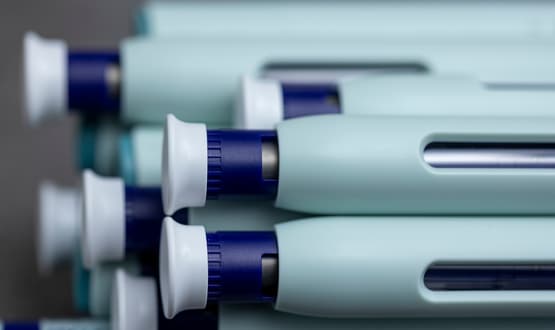A partnership between the Coalition for Epidemic Preparedness Innovations (CEPI) and biotech company aVaxziPen, is hoping to improve access to vaccines by removing the need for frozen storage.
CEPI will initially provide up to $1.6million to establish a proof-of-concept for aVaxziPen’s needle-free vaccine delivery platform. The technology will be evaluated for its stability, delivery and preclinical immunogenicity of both mRNA and protein-based vaccines.
The platform could eliminate the need for frozen storage, enabling easier distribution and deployment and improving equitable access to vaccines.
Robin Cohen, chief business officer, aVaxziPen, said: “Collaboratively we will bring our solid-dose vaccine formulations to two vaccines to demonstrate significantly improved and extended thermostability, as well as testing immunogenicity with plans to progress into Phase 1 clinical trials.
“This is a great step forward in our mission to disrupt the vaccine market, providing improved vaccine coverage around the world, reaching under-served populations and markets.”
The current generation of mRNA vaccines require frozen storage, making it harder to get potentially lifesaving vaccines to vulnerable populations – especially people in poorer countries. Protein-based vaccines typically need to be stored between 2-8°C. If this requirement was removed it would make the last-mile delivery of the vaccines simpler, even in remote areas.
Using a pen applicator device, the aVaxziPen platform has been designed to address these challenges. Its proprietary solid-dose formulation technology uses precision engineering to produce a thermostable, guaranteed solid-dose formulation.
In addition, the applicator device is easy to administer and requires no specialised medical training and can be reused for 1,000 doses.
Anand Ekambaram, executive director of manufacturing and supply chain, CEPI, said: “aVaxziPen’s innovative vaccine delivery technology requires little-to-no training to administer, while simultaneously reducing the need for expensive and burdensome cold-chain storage, allowing for easier distribution and administration.
“These innovations would ultimately help to enable greater access to potentially lifesaving vaccines in lower resource settings when a future outbreak or pandemic threat emerges.”
The project is part of CEPI’s mission to harness innovative technologies to improve the speed, scale and access of vaccine development and manufacturing.
If the initial pre-clinical proof-of-concept is successfully established, there could be an extension of the partnership between CEPI and aVaxziPen which will see them agree on vaccine candidates to take forward into Phase 1 clinical trials. Vaccine candidates would be selected in alignment with unmet vaccination needs in low- and middle-income countries.

